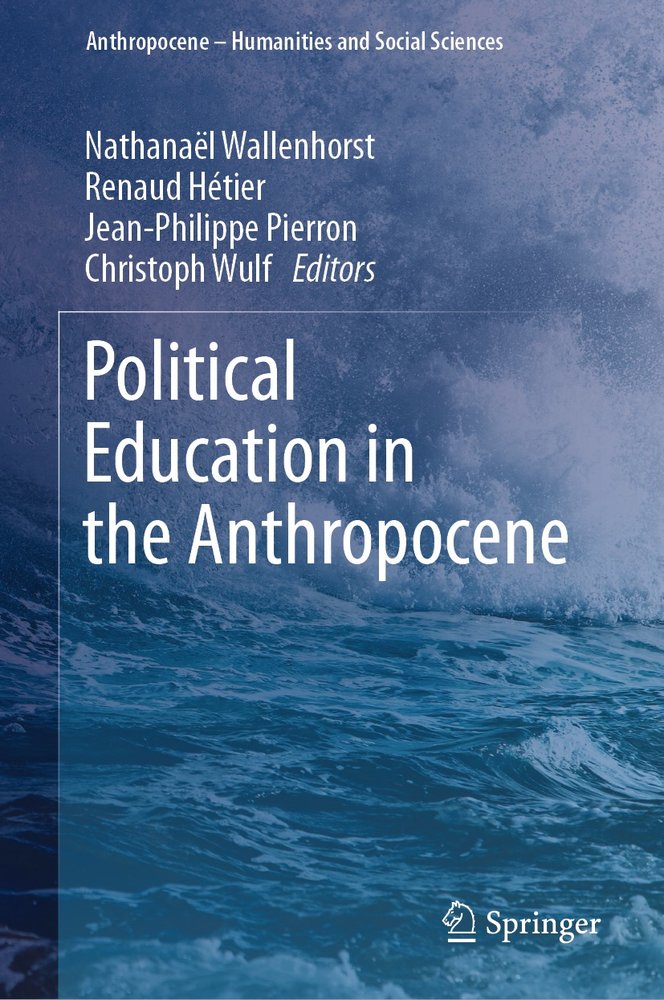Nathanaël Wallenhorst is Professor and Dean of the Faculty of Education at the Catholic University of the West (UCO). He is Doctor of Educational Sciences and Doktor der Philosophie (first international co-supervision PhD), and Doctor of Environmental Sciences and Doctor in Political Science (second international co-supervision PhD). He is the author of twenty books on politics, education, and anthropology in the Anthropocene. He is the leading contributor of the collections Anthropocene - Humanities and Social sciences (with Prof Christoph Wulf). Latest´s books : A critical theory for the Anthropocene (Springer, 2023), Handbook of the Anthropocene (Eds, with Christoph Wulf, Springer, 2023).
Renaud Hétier is professor at UCO (Angers), associate member of LISEC UR 2310 (University of Haute Alsace) and scientific collaborator at CREN, EA 2661 (Nantes). Former professor of the Écoles, a former lecturer, he has a doctoratein educational science from the University of Lyon 2 and is director of research at the University of Nantes. His work examines attention, presence and mediation in education, the anthropological and psychological significance of digital practices and also preparation for the future in times of collapse. He is well known as author of the French works La liberté à corps perdu. Retomber sur Terre (Throwing ourselves into freedom. Falling back to Earth) (Le Pommier, 2022); L´humanité contre l´Anthropocène. Résister aux effondrements (Humanity versus the Anthropocene. Resisting collapse) (PUF, 2021); Cultiver l´attention et le care en éducation. À la source des contes merveilleux (Cultivating attention and care in education. Through enchanting tales) (PURH, 2020); Créer un espace éducatif avec les contes merveilleux ou comment penser le conflit (Creating an educatiional space with enchanting tales or how to think about conflict) (Chronique Sociale, 2017) ; L´éducation, entre présence et médiation (Education between presence and mediation) (L´Harmattan, 2017).
Jean-Philippe Pierron is a university professor in philosophy at the Université de Bourgogne. He was the Director of the Doctoral School of Philosophy and is responsible for the Master's degree in Ethics, Ecology and Sustainable Development at this faculty. A specialist in the philosophy of care in the triple dimension of medical, parental and environmental care, he has notably published: Vulnérabilité, Pour une philosophie du soin (PUF, 2012) ; Mythopées, Mythologies de la modernité tardive (Vrin, 2015) ; Où va la famille? (LLL, 2015) ; Paul Ricoeur, Philosopher à son école (Vrin, 2015); La poétique de l'eau, Pour une nouvelle écologie (François Bourin, 2018). His work focuses on the role of imagination and poetics in the field of action.
Christoph Wulf is Professor of Anthropology and Education and a member of the Interdisciplinary Centre for Historical Anthropology, the Collaborative Research Centre (SFB, 1999-2012) Cultures of Performance, the Cluster of Excellence (2007-2012) Languages of Emotion, and the Graduate School InterArts (2006-2015) at the Freie Universität Berlin. His books have been translated into 20 languages. For his research in anthropology and anthropology of education, he received the title professor honoris causa from the University of Bucharest. He is Vice-President of the German Commission for UNESCO.


